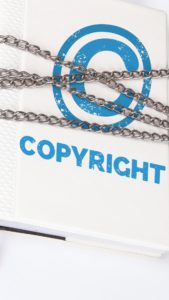What Does Commercial General Liability Insurance Cover? A Guide
- Commercial Insurance
- by Arnulfo Gonzalez
- May 3, 2021
If you are just about to start or recently started your own business, you probably already stumbled upon terms related to business insurance. And let’s face it, sometimes these terms are confusing. In this article we will discuss commercial general liability insurance, the most basic and essential type of business insurance. How will we do it? Specifically, by answering this question: “What does commercial general liability insurance cover?”
Commercial general liability insurance: a definition
Commercial general liability insurance (CGL) is a type of commercial insurance that provides liability coverage for general business risks. In other words, it protects your business from financial loss in situations when you are liable for property damage or personal or advertising injury caused by your business operations, services, or employees.
What does commercial general liability insurance cover?
To better understand commercial general liability insurance (and the need to purchase it for your business), let’s see what type of risks this policy covers.
Bodily injury and property damage liability
Bodily injury and property damage liability coverage protects your business against losses from legal liability if your business caused bodily injury and property damage to others. This type of coverage works for non-professional negligent acts and for damage caused by your business’s premises or operations.

A classic example would be this one: a client comes into your office/shop, slips on the freshly cleaned wet floor, falls and breaks a leg, then sues your business. Your policy will cover for legal costs. In fact, since this occurrence is quite common, commercial general liability insurance is often called “slip and fall” insurance.
Or, let’s say you are an electrician, you go to a client’s house to fix a circuit, and you accidentally cause a fire in the house. Your client sues your business, and your policy will cover for legal costs.
This type of coverage also applies for mental injuries and emotional distress because they can be considered bodily injuries, even when there is no physical harm.
Personal and advertising injury
This type of coverage protects your business against losses from legal liability if a third party sues your business for certain offenses, explained below.
Personal injury is a category of offenses including:
- False arrest, detention, or imprisonment: you deprive someone of their right to liberty.
- Malicious prosecution: you sue someone without a reasonable cause.
- Wrongful eviction: you are a property owner and you evict someone from their leased building/space, without a reasonable cause.
Advertising injury includes:
- Slander or libel – you defame a person by speech (slander) or in writing or pictures (libel) while making false statements.
- Violation of privacy – you violate someone’s privacy by oral or written statements by disclosing private facts, even if they are true. Misappropriation of someone’s name or likeness is also included here.
- Copyright infringement – you use copyrighted content (like music, images, text) without the copyright owner’s permission.
- Use of another’s advertising idea – you use another firm’s advertising content, such as a slogan, a poster, or a video, as your own
Medical payments
Medical payments coverage pays for medical expenses if a third party (i.e. a client) is injured or killed in an accident that takes place on your business’s premises or as a result of your business operations. This type of coverage comes into play without any legal action, and its purpose is to quickly settle smaller medical claims without going to court. The types of expenses that medical payments coverage pays for are: medical care, surgery, ambulance, hospital, professional nursing and funeral expenses.
This type of coverage doesn’t pay for legal liability. The other types of commercial general liability coverage (bodily injury and property damage liability coverage, and personal and advertising injury coverage) already take care of that.
Let’s take the “slip and fall” example: a client enters your shop or office, falls on the wet floor, but only suffers a small sprain on his ankle and needs minor medical care, thus deciding not to sue you. Your business is still liable for the injury, and the medical payments coverage will pay the medical bill.
What commercial general liability insurance doesn’t cover
As we saw, commercial general liability insurance covers the most common and basic types of risk that your business faces on a day-to-day basis. But there are certain risks that commercial general liability insurance does not cover, although you might believe it does.
Professional liability
General liability policies don’t cover damage caused by professional negligence or omission. An example: your business is an accounting firm. You give certain advice to a client. Because of your advice, the client loses an amount of money and sues your firm to cover the loss. To get protection from this type of risk, you will need a separate policy called professional liability insurance. This is also known as “errors and omissions insurance”.
Liquor liability
Damage caused by a person under the influence of alcohol on your business premises. An example: your business is a bar. A client gets drunk while inside the bar and starts a fight with another client. The injured client sues your business to pay for the damage. Your general liability policy will not cover this expense. To cover this expense, you will need liquor liability coverage, purchased separately.
Pollution liability
Your general liability policy doesn’t cover sudden or gradual environmental damage caused by your business operations. An example: you own a construction company, and sewage produced from concrete stirring is spilled on a neighboring lot. As a result, the owner of the neighboring lot sues your company. To cover the cost you would need pollution liability coverage. This is coverage that you purchase in addition to your main commercial general liability policy.
When do I need commercial general liability insurance?
In most cases and states, commercial general liability insurance is not legally mandatory (in Texas, for example, it is not). Nevertheless, it is always a good idea to have it. No matter the type of business you have, it faces these common risks every day. And costs associated with claims can seriously damage your business’s financial stability and future if you have to pay them out of pocket.
We strongly recommend almost every type of business to have commercial general liability insurance. And if any of the following situations apply to your business, then you need this type of insurance even more. So, you need to have general liability insurance if you:
- interact with customers in person: you own any kind of physical shop that clients get into, or an office open to the public, or you visit customers in person to give your services.
- interact with customers’ property in person: you fix and improve clients’ homes, or you have clients bring you their items (like a car) to fix.
- perform business related activities on third party premises: clients contract you to work on any kind of job site, construction site etc.
- use advertising to promote your business: this includes digital advertising such as search ads or social media ads.
- are required to have it to be accepted for projects or bids: this applies to contractors in many fields such as construction.
Does a small business need commercial general liability insurance?
You might think that only large companies need commercial general liability insurance. And they do. But for small businesses, it is crucial. If your business it sued for damage it caused to third parties, the costs you need to cover out of pocket if you don’t have insurance can often be enormous.
Moreover, most small businesses can’t even afford the cost of a lawsuit. As a consequence, an event like this, without commercial general liability insurance, may very well get you out of business.
To Conclude
Starting your own business is an exciting and intense time in your working life. It involves a lot of planning to make sure you set yourself up for success. Business insurance should be one of the elements of the plan. And if you have been wondering “What does commercial general liability insurance cover?”, after reading this article you are on the right path to making the right decision.
Depending on the type of business you plan to operate, you may need additional coverage. To make sure you purchase the right coverage for your business, the best thing to do is to get help from an independent insurance agency, like us. By not being tied to any specific insurance company, we can present you the best options in the market. The advice we offer will be unbiased, so that you get the right coverage, at the right price.
Are you planning to or recently started your own business? Tell us in the comments!





